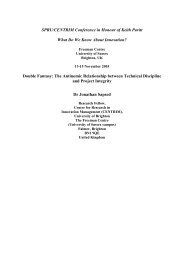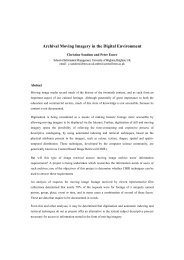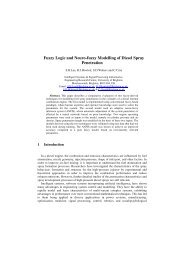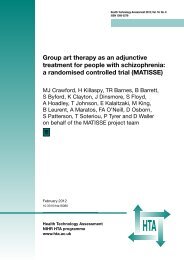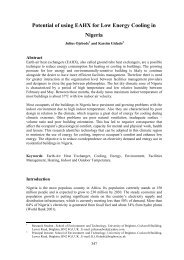NESTA Crime Online - University of Brighton Repository
NESTA Crime Online - University of Brighton Repository
NESTA Crime Online - University of Brighton Repository
Create successful ePaper yourself
Turn your PDF publications into a flip-book with our unique Google optimized e-Paper software.
the fastest growing segments. However, low salaries and fast turnover in the industry<br />
might provide an incentive to make extra money through cybercrime.<br />
Call centre cybercrime is becoming popular. A recent article in India Daily stated that for<br />
locals in Pune and Bangalore in India, the biggest incentive to work in a call centre is to<br />
be able to hack the bank accounts and illegally withdraw millions from bank customers.<br />
During the last five years, the number <strong>of</strong> reported cases has multiplied and undercover<br />
investigations have revealed the large flow <strong>of</strong> stolen personal data that is moved<br />
through call centres in financial services.<br />
Amid fears <strong>of</strong> losing international customers, local companies have tightened security<br />
measures. Although these cases have been labelled as isolated cases <strong>of</strong> fraud, certain<br />
investigations have suggested that there is evidence <strong>of</strong> some operations being carefully<br />
designed and very organised.<br />
Sources: Ahmed, Z. (2005) ‘Outsourcing exposes firms to fraud’, BBC News <strong>Online</strong>, 16<br />
June; Gombar, V. (2006)’Indian call centres under threat’, Rediff India Abroad, 22 July;<br />
Patel, H. (2007) ‘Call center cyber crime increasing – many trying to hack into bank<br />
websites and illegally withdraw millions – one gets into police net’, India Daily, 17<br />
November.<br />
Russia, China and Brazil are world leaders in cybercrime, with groups and individuals in<br />
India powering up to compete. Yet companies in Europe and the US are increasingly<br />
moving IT functions and s<strong>of</strong>tware development tasks to India, Brazil, Russia and Eastern<br />
Europe in a bid to draw on their good IT skills and lower wages. This phenomena<br />
(<strong>of</strong>fshore outsourcing), has raised new concerns about the security risks involved, where<br />
access to valuable financial information can provide an opportunity for different actors to<br />
enter the cybercrime business.<br />
It is no coincidence that these are also the BRIC 106 nations that are seen as the<br />
economic powerhouses <strong>of</strong> the future. 107 India, Russia and Brazil share a light regulatory<br />
106 BRIC is the abbreviation used to describe the newly industrialised countries <strong>of</strong> Brazil, Russia, India and<br />
China.<br />
107 National Intelligence Council, (November 2008), Global Trends 2025: A Transformed World, (Washington,<br />
DC), highlights the importance <strong>of</strong> the BRICs.<br />
Page 35






